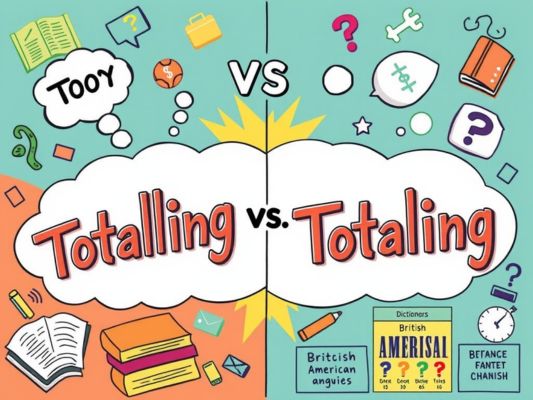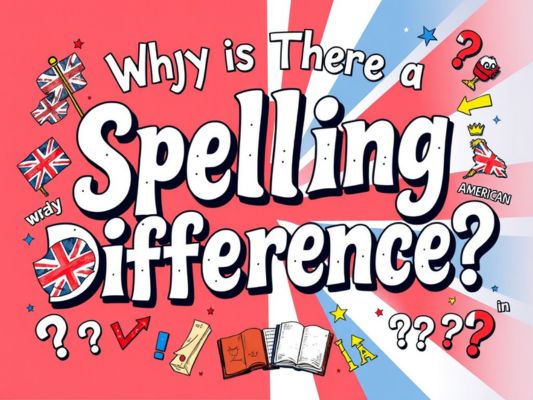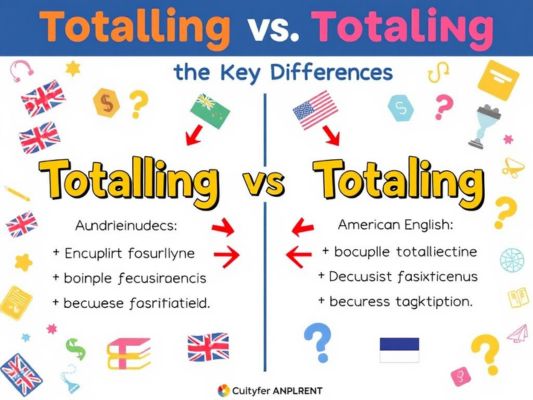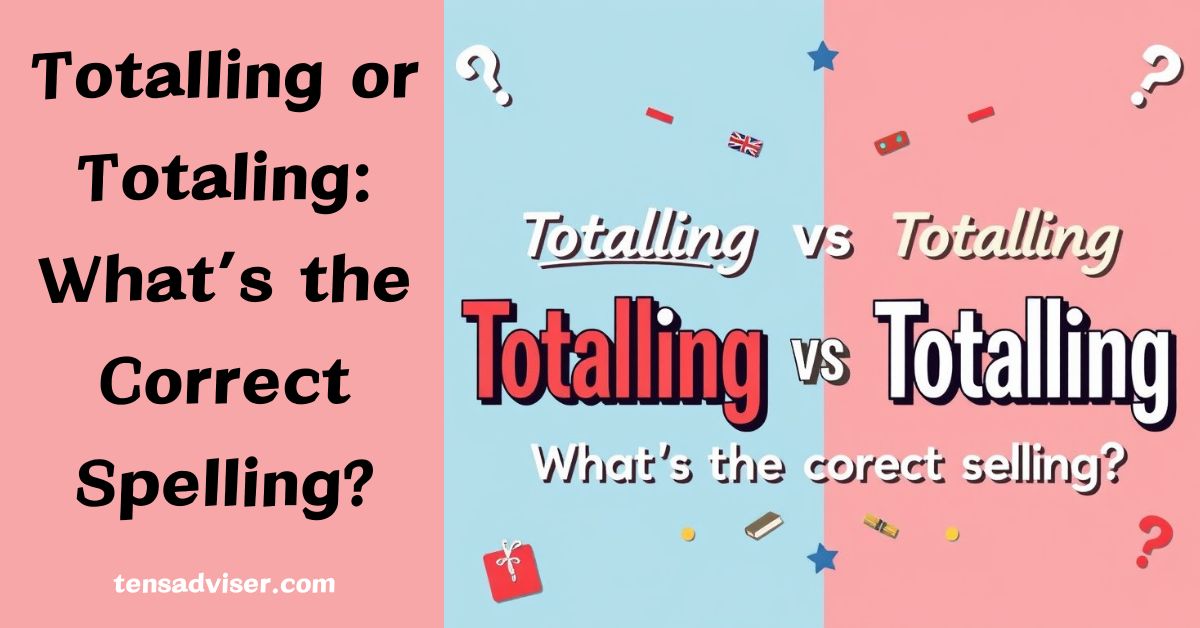“Totalling” or “Totaling” means adding numbers together to find the total. Both words have the same meaning but are spelled differently in British and American English. The choice depends on where and how you are writing.
In British English, the word is spelled as “totalling” with two Ls. In American English, it’s spelled as “totaling” with one L. This difference comes from unique spelling rules in each region.
When writing in English, you might wonder whether to use totalling or totaling. The difference is simple, but it can cause confusion. The spelling depends on which type of English you are using.
In this article, we will explore the spelling variations and help you understand when to use totalling and when to use totaling. We will also look at the regional preferences, historical context, and usage examples for each spelling.
“Totalling” or “Totaling”: What’s the Difference?
The primary difference between totalling and totaling lies in the spelling. Totalling uses a double “l” and is commonly used in British English. On the other hand, totaling uses a single “l” and is preferred in American English.
The two words have the same meaning. Both refer to the action of adding up numbers or calculating a total. For example, whether you are adding up the scores of a game or calculating your monthly expenses, you are totalling or totaling the amounts.
Totalling is often found in British English texts, while totaling is the spelling used in American English. This spelling difference is part of a larger trend where some words follow similar patterns. For instance, travelling in British English becomes traveling in American English. Understanding these spelling conventions can help you decide which spelling to use in your writing.
Why There Is Confusion Between “Totalling” and “Totaling”?

The confusion between totalling and totaling arises because the two spellings mean the same thing. The issue is mainly the regional language preferences. When reading different texts, you might see both forms used. However, you might not always realize that this difference is based on whether the writer is using American English or British English.
This confusion can also come from the way spelling conventions evolved over time. In the 19th century, Noah Webster started simplifying English spelling in the United States. This reform led to the use of simplified spelling like totaling in place of totalling. This simplification has continued to influence how American writers spell words. On the other hand, British English continued to use the more traditional double “l” spelling.
Synonyms of “Totalling” or “Totaling”
Both totalling and totaling can be replaced by several synonyms. Here are some common ones: summing, calculating, adding, tallying, reckoning, and compiling. These words all refer to the process of adding numbers together to get a total amount. Depending on the context, one synonym might work better than another.
For example, when talking about finances, you might say, “The accountant is summing the expenses,” or, “The analyst is calculating the total sales.” Similarly, in sports, you could say, “The team is tallying the points scored.”
Using “Totalling” and “Totaling” in Sentences
The words totalling and totaling are often used in the same contexts. They both refer to adding numbers or sums together. For example, you could say, “The teacher is totalling the test scores,” if you’re using British English, or “The cashier is totaling the bill,” if you’re using American English.
Here are more examples:
- Totalling: “She is totalling the number of votes.”
- Totaling: “The report is totaling the sales for the year.” Both sentences refer to the same action of calculating a total, but the spelling changes depending on whether the writer is following British English spelling rules or American English spelling rules.
British English: Totalling
In British English, the use of totalling is the standard. You will commonly see this spelling in official documents, books, and newspapers in the UK. The word totalling follows the British spelling patterns, where many words double the consonant before adding an “ing” (like travelling, counselling, etc.).
For example, in British English, you might read a sentence like, “The manager is totalling the expenses for the project.” This sentence uses totalling as the present participle of total.
American English: Totaling
In American English, the spelling totaling is preferred. This follows American English spelling rules, which tend to simplify words by removing extra letters. For example, travelling becomes traveling, and defence becomes defense.
An example of totaling in American English is, “The accountant is totaling the receipts for the month.” Here, the spelling conforms to American standards and uses a single “l.”
Why Is There a Spelling Difference?

The difference between totalling and totaling is rooted in the history of English spelling reforms. The primary reason for the spelling difference is Noah Webster’s reforms in the 19th century. Webster aimed to simplify English spelling, removing unnecessary letters and inconsistencies. He introduced the use of single consonants in words like totaling, which were previously spelled with double consonants, like totalling.
In the UK, however, British spelling rules continued to use the traditional forms, and they maintained the double “l” spelling in many words. This created a division between American English spelling and British English spelling, which we still see today.
Historical Context
The history of totalling and totaling ties back to the early 1800s, when Noah Webster made significant changes to American English. Webster believed English spelling should be simplified, so he made several changes to how words were spelled. For example, in his dictionary, he replaced the double “l” in words like totalling with a single “l” to create totaling.
These changes were widely adopted in the United States but were not accepted in the UK. Therefore, totalling remained the standard in British English, while totaling became the norm in American English.
Spelling and Style Guides: Which Should You Follow?
When deciding whether to use totalling or totaling, it’s important to follow the appropriate style guide for your audience. British English style guides, such as the Oxford English Dictionary, will recommend the use of totalling. Meanwhile, in the United States, style guides like the Chicago Manual of Style or the AP Stylebook will prefer totaling.
Choosing the correct spelling depends on the region and the context of your writing. If you’re writing for a global audience, it’s best to choose the spelling that matches your intended audience’s location.
When to Use Totalling
You should use totalling when writing for a British audience or when following British English spelling rules. For instance, if you’re writing a report for a UK-based company, you should use totalling. In the UK, it is also common to see totalling used in academic papers, books, and newspapers.
When to Use Totaling
You should use totaling when writing for an American audience or when following American English spelling rules. If you are writing for a U.S.-based business, school, or publication, totaling is the correct spelling. American English spelling tends to simplify words, so totaling is the standard in the U.S.
Everyday Examples of “Totalling” and “Totaling” in Sentences
Here are examples of how totalling and totaling are used in everyday sentences:
Totalling:
- “The teacher is totalling the scores from the exam.”
- “The accountant is totalling the expenses for the month.”
Totaling:
- “The cashier is totaling the bill for the customer.”
- “The project manager is totaling the costs of the supplies.”
In both cases, the action is the same adding up or calculating a total—but the spelling depends on whether you’re following British English or American English.
Totalling vs Totaling: The Key Differences

The key difference between totalling and totaling is their spelling. Totalling uses a double “l” and is used in British English, while totaling uses a single “l” and is the preferred spelling in American English. Both words have the same meaning and are used in the same way, but the spelling depends on your audience and the style guide you are following.
Trends of “Totalling” and “Totaling”
The use of totalling and totaling has remained fairly consistent over time. British English still favors the double “l” in words like totalling, while American English continues to use the simplified single “l” spelling in words like totaling. However, due to globalization, there are times when American English influences other regions, especially in business and technology.
Related Terms and Synonyms for “Totalling” and “Totaling”
Some synonyms for totalling and totaling include **s
umming**, adding up, reckoning, and calculating. These terms are used interchangeably in many contexts. For example, instead of saying “I’m totalling the numbers,” you could say, “I’m adding up the numbers.”
In business and accounting, totalling and totaling are often used to describe the act of adding up financial figures or calculating the total amount. Understanding the correct spelling in different contexts is essential for clear business communication and effective writing.
By understanding the history of these words, their usage in different English varieties, and the spelling conventions, you can choose the right word for your writing and audience.
FAQs
Here are some frequently asked questions to further clarify the differences between totalling and totaling:
How do you use totalling?
Totalling is used to describe the action of adding numbers together to get a sum. It is typically used in British English. For example: “He is totalling the sales figures for the month.”
What do you mean by totalling?
Totalling refers to the act of calculating the total amount of something, often by adding together different numbers. It can be used in contexts like finances, sports, and academic settings. The meaning is the same as totaling but follows British English spelling rules.
What are some synonyms for “totaling”?
Some synonyms for totaling include summing, adding, reckoning, calculating, and tallying. These words all describe the process of arriving at a total by adding multiple figures together.
Why do we have different spellings?
The different spellings of totalling and totaling are the result of historical spelling reforms. North Webster simplified English spelling in American English, leading to the use of a single “l” in words like totaling. Meanwhile, British English kept the traditional double “l” in words like totalling.
Do both spellings mean the same thing?
Yes, both totalling and totaling mean the same thing. They both refer to the act of adding numbers together to get a total. The difference is purely in the spelling: totalling is used in British English, and totaling is used in American English.
Conclusion
The debate between totalling and totaling boils down to the regional spelling differences between British English and American English. While both words share the same meaning, the spelling you choose depends on the style guide and audience you are writing for.
Totalling is the preferred spelling in British English, while totaling is commonly used in American English. Understanding these spelling conventions helps ensure your writing is accurate and tailored to your intended audience.
By exploring the historical context and language evolution, it becomes clear that these spelling differences have persisted due to cultural and historical influences. So, whether you are totaling expenses in the U.S. or totalling the votes in the UK, you now know which spelling to use.
Lastly, when you are writing for an international audience, it’s essential to consider these differences in spelling conventions and adjust accordingly to maintain clear and effective communication.
With 5 years of experience in grammar, I, Admin, deliver accurate, clear, and reliable content. My expertise ensures top-quality insights in this niche.

